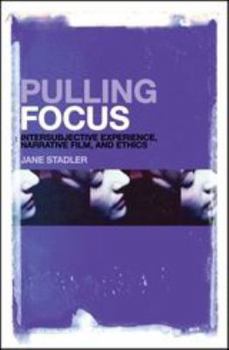Pulling Focus: Intersubjective Experience, Narrative Film, and Ethics
Select Format
Select Condition 
Book Overview
The most powerful films have an afterlife. Their sensory appeal and their capacity to elicit involvement in story, character and conflict reaches beyond the screen to subtly reframe the way spectators view ethical issues and agents within the narrative, and in the world outside the cinema. Pulling Focus: Intersubjective Experience and Narrative Film questions how cinematic narratives relate to and affect ethical life. Extending Martha Nussbaum and Wayne Booth's work on moral philosophy and literature to consider cinema, Dr. Stadler shows that film spectatorship can be understood as a model for ethical attention that engages the audience in an affective relationship with characters and their values. Building on Vivian Sobchack's Address of the Eye and Carnal Thoughts, she uses a phenomenological approach to analyse ethical dimensions of film extending beyond narrative content, arguing that the camera describes experience and views screen characters with an evaluative form of perception: an ethical gaze in which spectators participate. Films discussed include Dead Man Walking, Lost Highway, Batman Begins, Nil By Mouth, and Eternal Sunshine of the Spotless Mind.
The most powerful films have an afterlife. Their sensory appeal and their capacity to elicit involvement in story, character and conflict reaches beyond the screen to subtly reframe the way spectators view ethical issues and agents within the narrative, and in the world outside the cinema. Pulling Focus: Intersubjective Experience and Narrative Film questions how cinematic narratives relate to and affect ethical life. Extending Martha Nussbaum and Wayne Booth's work on moral philosophy and literature to consider cinema, Dr. Stadler shows that film spectatorship can be understood as a model for ethical attention that engages the audience in an affective relationship with characters and their values. Building on Vivian Sobchack's Address of the Eye and Carnal Thoughts, she uses a phenomenological approach to analyse ethical dimensions of film extending beyond narrative content, arguing that the camera describes experience and views screen characters with an evaluative form of perception: an ethical gaze in which spectators participate. Films discussed include Dead Man Walking, Lost Highway, Batman Begins, Nil By Mouth, and Eternal Sunshine of the Spotless Mind.




